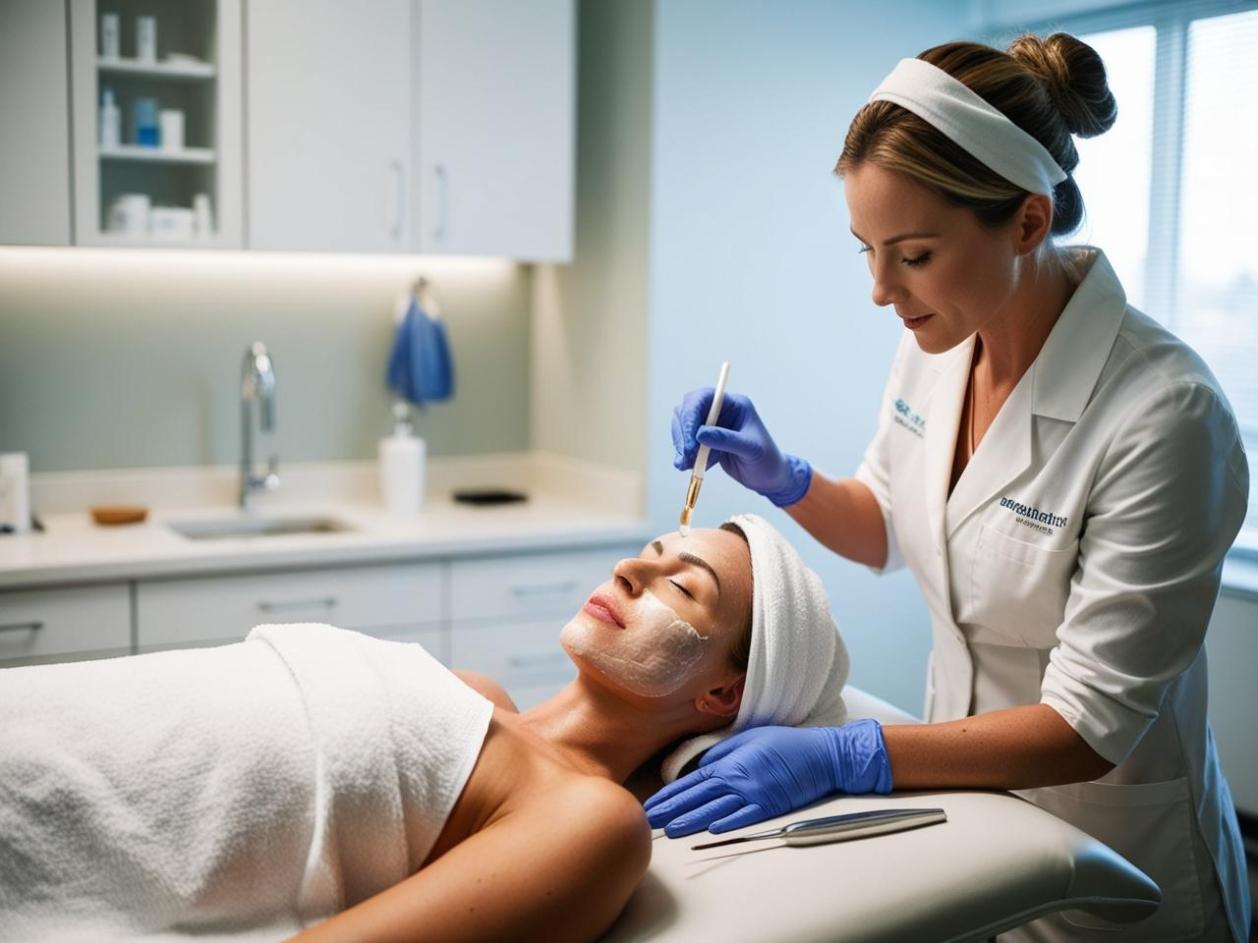5 Ways Chemical Peels in Denver Are Transforming Modern Dermatological Medicine

For a long time, people viewed chemical peels as enhancing one’s beauty and self-image. However, their more recent application in dermatological medicine expands their scope considerably.
In a highly medically advanced city like Denver, various treatments are now part of the arsenal for addressing a range of skin conditions. If you are looking for a chemical peel Denver that combines beauty procedures and skin health, you will be amazed at how advanced and medically beneficial these treatments have become.
I will outline numerous enhancements in modern dermatology below.
1. Acne and Acne Scars Treatment
Acne is one of the most common skin problems today. It is also one of the most stubborn and emotionally challenging. By exfoliating and unclogging the skin, chemical peels help reduce active acne.
Bacteria, oil, and dead skin primarily cause acne, which is why peels containing salicylic acid and glycolic acid are so effective. These ingredients also help reduce post-inflammatory hyperpigmentation and scarring over time, enhancing skin texture and tone.
2. Treating Sun Damage and Hyperpigmentation
The sun in Denver places residents at a higher UV skin damage risk. Chemical peels are a strong medical treatment option for sun damage-induced hyperpigmentation, age spots, and melasma.
Medium-depth peels are able to penetrate into the dermis and neutralize melanocytes, which reset uneven pigmentation. This procedure prevents exacerbation of chronic conditions such as melasma.
3. Stimulating Anti-Aging Collagen
The aging process slows down collagen production, leading to fine lines, sagging, and dull skin. Chemical peels are one of the tools dermatologists use to stimulate collagen synthesis. A controlled injury is inflicted on the skin to induce a healing response.
The recovery phase boosts the firmness, elasticity, and youthful appearance of skin, making chemical peels a gentle supplement to medical anti-aging treatments like microneedling and retinoids.
ALSO READ: How Laser Hair Removal in Frisco Reminds Us to Prioritize Healthy Choices Like a Balanced Diet?
4. Managing Potentially Cancerous Skin Growths
Actinic keratosis is a prevalent precancerous condition caused by sun damage. In dermatological practice, chemical peels—notably deeper ones with trichloroacetic acid (TCA)—are effective for this type of skin lesion.
By removing the most sun-damaged superficial layers of skin, these treatments may prevent abnormal cells from progressing into cancer. This encouraging strategy promotes a proactive approach to dermatology, decreasing the need for surgical interventions.
5. Improving Other Dermatologic Treatments
A chemical peel removes dead skin and the stratum corneum, making it easier for other topical treatments to work better. Dermatologists incorporate peels with prescription creams, serums, or even laser treatments.
This added level of dermatologic treatment enables significant and rapid clinical results because active ingredients are able to deeply penetrate the skin.
Conclusion
Chemical peels, previously regarded as spa treatments, are now considered as complementary medical procedures that improve the dermatological care a patient receives. These procedures are redefining how doctors manage both simple and complicated skin problems, ranging from acne treatment to skin cancer prophylactics.
Denver dermatologists can help you choose chemical peels that are both cosmetic and good for your skin’s long-term health. The outcome is skin that is healthier underneath and outside.
